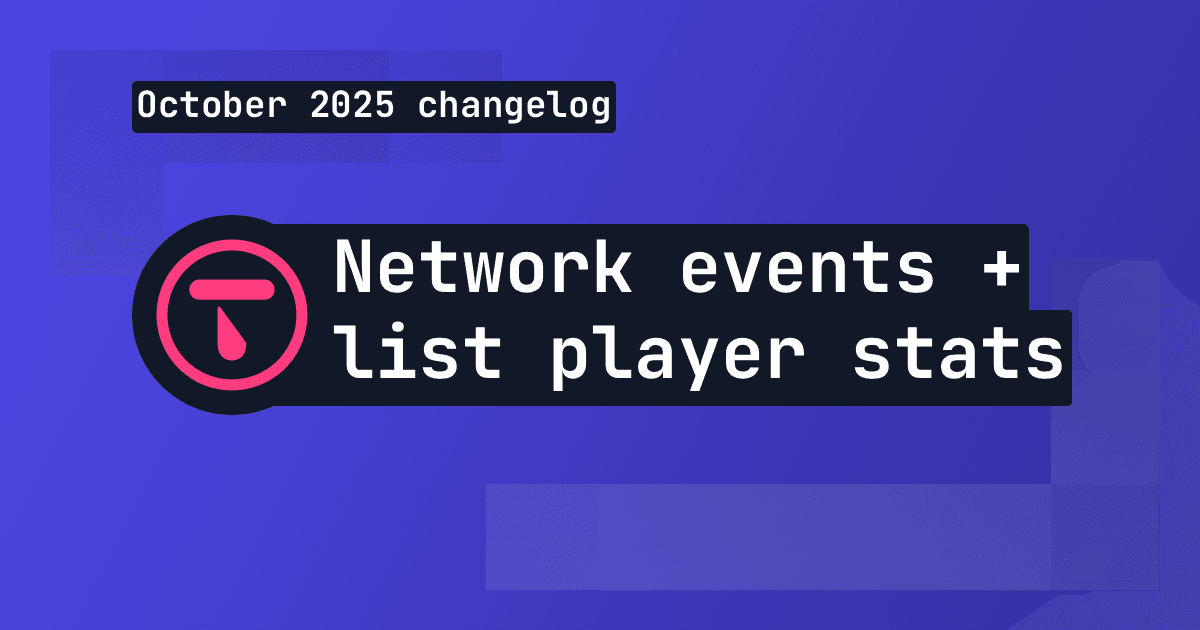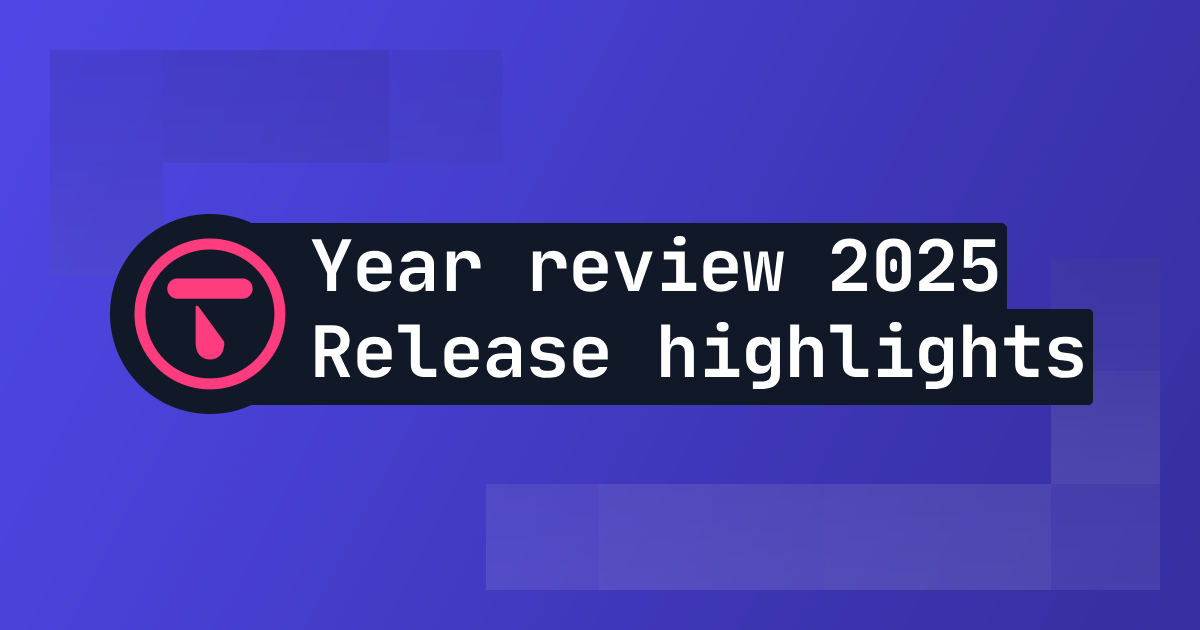
TL;DR
- The new list player stats API allows you to fetch all player stat values in a single request.
- Leaderboards can now be set to unique-by-props for more flexible entry management.
- Talo now exposes network connection events for better offline-mode handling.
October 2025 overview
This month's focus has been on making it easier to handle players losing and restoring network connection. We've also worked on adding extra flexibility to leaderboards and game stats.
For game stats, we've added the new list stats API which allows you to fetch all player stat values in a single request. This is especially useful for games with multiple stats per player, as it reduces the number of API calls needed to display player profiles or stat summaries.
On the leaderboards front, we've added timezone support for date filtering and a new unique-by-props setting that lets you control entry uniqueness based on props rather than just player IDs.
Finally, we've introduced new feature tags for our Godot plugin so you can easily control when data is treated as development or live data.
Frontend updates
- Timezones in date filters: date filters across the dashboard now support timezone selection, making it easier to view data in your local timezone. This ensures more accurate time-based filtering when managing leaderboard entries and other time-sensitive data.
- Leaderboard unique by props setting: leaderboards can now be configured to enforce uniqueness based on props rather than just player IDs. This allows for more flexible leaderboard structures, such as ensuring only one unique entry per player per level.
Platform updates
- List player stats API: the new list player stats endpoint allows you to retrieve all player stat values for a given player in a single request. This significantly reduces the number of API calls needed when displaying player profiles or stat summaries.
- Socket token API: the new socket token API provides a dedicated endpoint for obtaining authentication tokens for socket connections. This gives you more control over socket connection lifecycles and makes it easier to handle reconnection scenarios.
- Performance improvements: several backend optimisations improve response times for stats APIs and socket operations.
Godot plugin updates
- List player stats API: you can now fetch all player stat values for the current player using
Talo.stats.list_player_stats(). This returns a list of all stats with their current values and related stat objects. - Dev data feature tags: new
talo_devandtalo_livefeature tags allow you to override whether a build is marked as development or live data, regardless of the debug flag. This gives you more control over data separation when exporting your game. - Network connection events: new
Talo.on_connection_lostandTalo.on_connection_restoredsignals emit when network connectivity changes. The socket automatically reconnects when connection is restored, and you can use these events to update your UI or pause gameplay accordingly.
You can get the latest version of the Godot plugin on GitHub. Please make sure to give us a star ⭐️ if you've enjoyed using the plugin!
Unity package updates
- List player stats API: the new
Talo.Stats.ListPlayerStats()method allows you to retrieve all player stat values for the current player in a single call. This is perfect for populating player profile screens or stat dashboards. - Network connection events: new
Talo.OnConnectionLostandTalo.OnConnectionRestoredevents fire when network connectivity changes. The socket automatically reconnects when connection is restored, and you can use these events to update your UI or pause gameplay accordingly.
The latest version of the Unity package is available on GitHub. We'd love it if you could give us a star ⭐️ if you've found the package useful!
Coming up next (player broadcasts)
Progress continues (slowly but surely!) on the new player subscriptions feature. This will now be known as player broadcasts and will work like this:
- Player A subscribes to Player B's broadcasts
- Player B must accept Player A's subscription request.
- Player B can revoke subscriptions at any time. Player A can also check their active subscriptions and unsubscribe whenever they want.
- When Player B sends a broadcast message, all subscribed players (including Player A) will receive the message.
Player broadcasts enable a number of use cases such as friends lists, followers and other social features. Stay tuned for more updates!
Join the community
Join us on Discord to keep up to date with all the latest additions and improvements!
Build your game faster with Talo
Don't reinvent the wheel. Integrate leaderboards, stats, event tracking and more in minutes.
Using Talo, you can view and manage your players directly from the dashboard. It's free!
Get started
More from the Talo Blog

Changelog: Player Relationships API and dashboard UX
Build friends lists, followers and other social features with Talo's new Player relationships API.

Collecting Player Feedback in Godot with Talo
Learn how to collect structured, contextual player feedback in your Godot game using categories and props with the Talo Godot plugin.

Friends list & messaging API now live for Godot & Unity
Build friends lists, follower systems and real-time player messaging with our new Player Relationships API. Create social features for your Godot or Unity game without writing your own networking code.

2025 Year in review: release highlights from Talo
Highlights from all the major Talo releases in 2025, plus a sneak peek at the new player relationships API